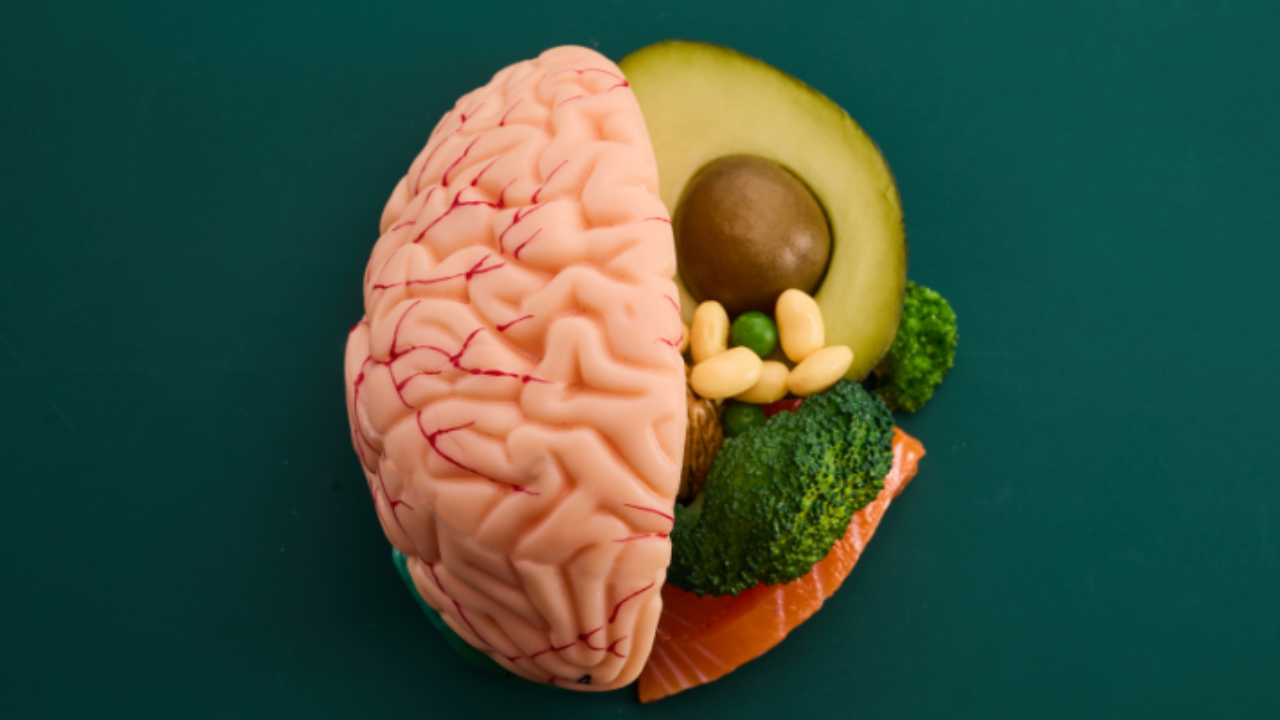Beyond What You Eat: The Science of HOW You Eat

Insights from Dr. Ruan's Root Causes of Memory Loss Group Visit Program
When most people think about nutrition, they focus on what to eat. Should I avoid gluten? Is keto better than Mediterranean? While food choices matter, there's a more fundamental question that often gets overlooked: How are you eating?
At Texas Center for Lifestyle Medicine, our Root Causes of Memory Loss program explores this critical distinction. The same blueberry can have dramatically different effects on your body depending on whether you eat it in a state of calm happiness or stressed excitation.
The Real Purpose of Food in Modern Life
Let's start with an honest assessment. In our world of abundance, food serves a purpose beyond survival—it's primarily used for pleasure and comfort. There's nothing wrong with this, but we need to acknowledge it rather than pretend we're always eating purely for health.
Food also serves important social and cultural functions. We gather around meals, celebrate with food, and maintain family traditions through recipes. This social aspect isn't just nice to have—it's physiologically essential for proper digestion.
Two Pathways: Excitation vs. Happiness
Your nervous system has two primary modes when it comes to food consumption:
Excitation Pathway (Dopamine-driven)
- Eating alone while scrolling your phone
- Grabbing food on-the-go
- Eating while anxious, stressed, or distracted
- Consuming food for a "quick fix"
Happiness Pathway (Serotonin-driven)
- Eating with others in a calm environment
- Taking time to sit and focus on your meal
- Sharing conversation during meals
- Eating without distractions
The remarkable discovery? The same food causes completely different physiological responses depending on which pathway is activated.
Why the Happiness Pathway Improves Digestion
When you eat in a calm, happy state, your vagus nerve—the main communication highway between your brain and gut—functions optimally. This nerve stimulates digestive enzyme production and proper gut function.
Eating in excitation mode, however, can lead to:
- Poor digestion even with healthy foods
- Development of food allergies and sensitivities
- Increased inflammation
- Consuming 25% more calories without realizing it
This explains why some people develop allergies to healthy foods they eat frequently—they may be consuming these foods in a state of chronic excitation.
The Foundation: Hydration and Sleep
Before addressing what you eat, two foundational elements must be in place:
Proper Hydration
Hydration isn't just about water—it's about maintaining the right balance of electrolytes, specifically salt and sugar. Your body's "osmolar balance" determines whether you experience food cravings.
Key insights about hydration:
- Most people are salt-depleted, leading to sugar cravings
- Starting your day with water can be more energizing than caffeine
- If drinking water makes you feel queasy, you likely need more salt
- Your liver can produce the sugar your body needs, but you must consume salt
Quality Sleep
Sleep regulates anti-diuretic hormone through melatonin production, allowing your cells to retain the water they need. Without adequate sleep:
- You become dehydrated at the cellular level
- Your brain can't function optimally
- You're more likely to eat in excitation mode
- Sleep apnea is the #1 risk factor for Alzheimer's disease
Practical Steps to Transform How You Eat
- Assess Your Current State: Before changing what you eat, notice how you're eating. Are you usually alone or with others? Distracted or focused?
- Start with Hydration: Begin each day with water containing a small amount of salt. Monitor how this affects your food cravings throughout the day.
- Prioritize Sleep: Address any sleep issues before making dramatic dietary changes. Consider screen time exposure and sleep environment.
- Create Eating Rituals: Even if you live alone, create calm moments around meals. Put devices away, sit at a table, and focus on your food.
- Include Others When Possible: Share meals with family or friends. The social aspect activates the happiness pathway naturally.
The Cultural Shift We Need
Many modern eating challenges stem from cultural changes: busy families eating separately, children consuming meals while on devices, and adults grabbing food on-the-go between obligations. While we can't always control our circumstances, we can make small, intentional choices about how we approach meals.
The goal isn't perfection—it's awareness. When you must eat quickly or alone, at least recognize you're in excitation mode. When possible, choose the happiness pathway through calm, social eating experiences.
Why This Matters for Brain Health
The connection between eating patterns and cognitive function is profound. Chronic excitation eating, combined with poor hydration and sleep, creates a pathway toward:
- ADHD-like symptoms
- Anxiety and depression
- Memory issues
- Eventually, cognitive decline
By addressing how you eat—along with proper hydration and sleep—you naturally begin making better choices about what you eat, often without conscious effort.
Ready to Dive Deeper?
This approach to nutrition and brain health is just one component of our comprehensive Root Causes of Memory Loss group program at Texas Center for Lifestyle Medicine. Our group visits provide ongoing education, community support, and practical strategies for implementing these concepts in your daily life.
What you can expect from our group visit programs:
- Small group settings with personalized attention
- Evidence-based approaches to brain health and nutrition
- Practical strategies you can implement immediately
- Supportive community of like-minded individuals
- Regular follow-up and accountability
If you're interested in learning more about our Root Causes of Memory Loss group program or other group visit offerings, contact Texas Center for Lifestyle Medicine to explore how we can support your health journey.
The information provided in this blog post is based on insights from our group visit program and is for educational purposes. Always consult with your healthcare provider before making significant changes to your diet, medication, or health routine.
